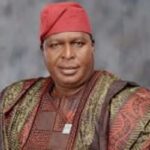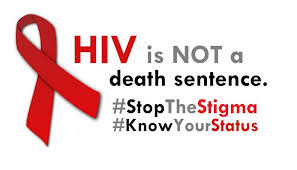By Abujah Racheal, News Agency of Nigeria (NAN)
In the brightly lit corridors of a Nigerian hospital, an unspoken fear lingers, not just among patients, but among the very hands trained to heal them.
In spite of decades of awareness campaigns, scientific advances, and access to life-saving antiretroviral treatment, HIV remains a subject cloaked in silence even among healthcare workers.
Some flinch at disclosure while others lower their voices when discussing a diagnosis.
Mrs Gwanja Anja (not her real name), a senior nurse in a federal hospital, has been living with HIV for more than 11 years.
Anja said she had never told her colleagues about her status.
“I take my medication religiously and quietly; but if anyone here finds out, I do not know what that would mean for my job.
“Even some doctors joke about patients who ‘look HIV-positive’; that fear never leaves you.”
She said she was infected through a needle-stick injury early at work.
“Though I reported the incident, the post-exposure prophylaxis (PEP) protocol was poorly handled,’’ she said.
Anja said months later, her test came back positive.
Since then, she has maintained her health in silence, hiding her pills and avoiding health worker clinics altogether.
Beyond individual experiences like that of Anja, the psychological impact of stigma is significant.
Dr Jumai Suleiman, a clinical psychologist who counsels healthcare workers, said that many of them bottled up their status, fearing judgment from colleagues who should be supportive.
“They carry it alone battling anxiety, shame, and burnout.”
She said that institutional silence worsens the problem as casual jokes, avoidance, and whispered gossip could isolate even the most resilient professionals.
“The internalised stigma among health workers is sometimes worse because they know the science, but still feel the shame,” she said.
According to stakeholders, Sub-Saharan Africa remains one of the regions most affected by HIV.
In Nigeria alone, an estimated 1.8 million people are living with the virus.
While antiretroviral therapy has significantly reduced HIV-related deaths, people living with HIV in resource-constrained settings like Nigeria still face psychological challenges and poor health outcomes linked to stigma.
According to the World Bank, the prevalence of HIV among Nigerians aged 15–49 was 1.3 per cent in 2021.
In 2025, Nigeria is estimated to have more than 2 million people living with HIV.
Available statistics indicates that the states with the highest prevalence rates are Akwa Ibom, 5.6 per cent, Benue, 4.9 per cent, and Rivers, 3.8 per cent.
Nigeria is working towards the 95-95-95 UNAIDS targets; 95 per cent of people living with HIV to know their status, 95 per cent of those to be on treatment and 95 per cent of those on treatment to achieve viral suppression.
Experts say that while the country has made notable progress in treatment coverage and viral suppression, testing remains a challenge.
Many still do not know their status, and stigma discourages both testing and disclosure.
While laws and policies attempt to shield all Nigerians from HIV-related stigma, key populations remain disproportionately affected and often unheard.
These include men who have sex with men, sex workers, people who inject drugs, and transgender persons.
Many face dual stigma: for their HIV status and their identity or behaviour.
Ms Jay Joy (not her real name) a 27-year-old sex worker living with HIV in Lagos State, shared her experience.
“When I tested positive, I was afraid to go to the hospital again.
“They kept staring, whispering, like I did not belong; sometimes, it is easier to suffer in silence than face them,” she said.
Meanwhile, the enactment of the Same-Sex Marriage Prohibition Act in 2014 has increased the legal risks for men having sex with men and other transgender communities.
Advocacy groups warn that fear of arrest or exposure keeps many from accessing care or reporting abuse.
Young people in Nigeria represent a growing share of new HIV infections but remain overlooked in public discourse.
Adolescents, in particular, struggle with disclosure, school-based stigma, and consistent access to medication.
A 17-year-old minor was diagnosed at birth; she said she hides her status at school.
“I never take my drugs in front of friends, if they find out, they will stop talking to me,’’ the minor said.
Youth-friendly HIV services remain limited across the country, and advocates are calling for better peer support programmes, school sensitisation, and targeted campaigns that address young people’s realities.
Religious beliefs and cultural norms continue to shape the public narrative around HIV in Nigeria.
While some faith leaders have championed compassionate care and promoted testing, others reinforce stigma by framing HIV as a moral failing.
Malam Imam Bashir, a cleric, shared a different message.
“HIV is not a punishment; it is a disease, and like any other disease, it needs care, not condemnation.”
Bashir said that community education through religious institutions had proven powerful.
“Expanding partnerships with faith-based organisations could help dismantle entrenched prejudices and offer spiritual and emotional support for people living with HIV,” he said.
Dr Temitope Ilori, Director-General of NACA, weighed in.
“We cannot win this fight unless we create a society where people living with HIV feel protected, not punished,” he said.
Dr Leopold Zekeng, UNAIDS Country Director, said that ending AIDS was not just a medical effort but a human rights imperative.
“Every act of discrimination is a step backwards,” he said.
Zekeng said to achieve its 2030 goal of ending AIDS as a public health threat, Nigeria must match medical progress with social transformation.
He said that stakeholders must ensure all Nigerian states domesticated the HIV/AIDS Anti-Discrimination Act to ensure legal protection for people living with HIV across the country.
Zekeng said that health workers and communities must be equipped with comprehensive anti-stigma training to foster more inclusive and compassionate care environments.
Observers say it is essential to support youth-led and key population-led initiatives that drive awareness, advocacy, and peer support for people living with HIV.
They say faith leaders should be empowered to actively promote messages of dignity, inclusion, and care for people affected by HIV.
According to health experts, enforcement mechanisms must be strengthened, and access to justice expanded, to protect the rights of individuals facing HIV-related stigma and abuse.
“Stigma is not just a barrier to care, it is a barrier to hope; ending it begins with listening, supporting, and speaking openly,’’ they said.(NANFeatures)
***If used, please credit the writer and the News Agency of Nigeria.












